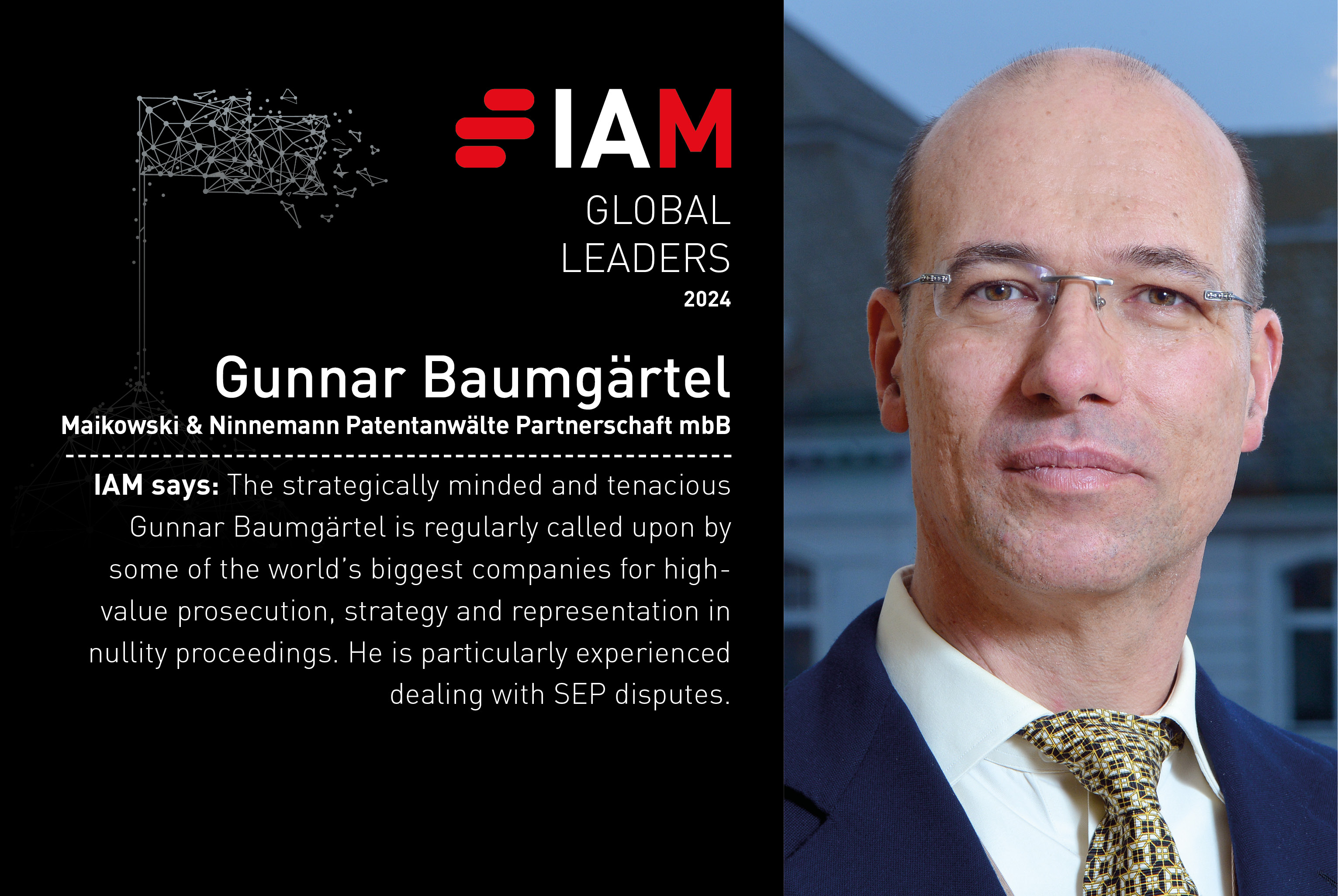Gunnar Baumgartel
 How has your involvement in the boards of GRUR and AIPPI and your role as a patent law lecturer at the FU Berlin contributed to your professional development?
How has your involvement in the boards of GRUR and AIPPI and your role as a patent law lecturer at the FU Berlin contributed to your professional development?
My involvement in GRUR and AIPPI and my role as a patent law lecturer have contributed to my professional development in multiple ways. First, I learned to approach legal matters outside of specific cases, thereby broadening my understanding of the law. Second, I got to know many distinguished professionals in the IP field, some of whom I have established fruitful working relationships with. Finally, I have been able to contribute towards shaping the IP community both nationally and internationally.
How has the launch of the UPC changed behaviours in the patent ecosystem so far, and what further changes do you expect?
The launch of the UPC is having far-reaching effects on the patent ecosystem. Notably, the handling of cases before the UPC will typically be more complex compared to national ones, certainly so when compared to German patent infringement proceedings. I expect that this will also lead to a further concentration of cases on a limited number of highly specialised and experienced general IP law firms and patent attorney firms. Due to infringement and nullity proceedings being closely intertwined before the UPC, seamless cooperation between patent attorneys and attorneys at law will be of utmost importance.
You are recognised as being one of the most experienced German attorneys when it comes to patent litigation. What is the secret to a world-class litigation strategy?
An essential aspect of a successful litigation strategy involves achieving a deep understanding of both the technical foundations and legal implications of a litigation matter in its early stages. Building on this, effective communication with clients, technical experts and within the legal team is quintessential to deal with complexities involved in patent litigation matters, which are characterised by a unique interplay of technical and legal challenges. Moreover, successful litigation requires the ability to plead convincingly in front of the courts and to prepare such pleadings by written submissions, as well as being flexible enough to adapt to any unforeseen developments during the hearing.
What do foreign rights holders looking to enforce their rights before the German courts need to know?
The German patent litigation system is bifurcated; infringement and nullity proceedings are handled separately by different courts. Infringement proceedings are heard by district courts, whereas nullity proceedings are heard by the Federal Patent Court. This leads to a distributed workload and speedier proceedings before the district courts than in many other jurisdictions. The principle of bifurcation does, however, also come with risks. A claimant may, for instance, obtain an injunction in infringement proceedings before the Federal Patent Court decides on the patent’s validity.
What aspects of your work do you enjoy most, and why?
Personally, I like that my work in both patent litigation and prosecution involves diverse challenges – no two cases are the same. In addition, every case comes with issues very specific to patent law. As a result, claim construction, which is fundamental in both litigation and prosecution, requires applying principles of legal interpretation to the claims, while simultaneously considering the understanding of the relevant claim features by a person skilled in the art. This presents legal practitioners with demanding challenges. Addressing these issues is accompanied by insights into cutting-edge innovation, which allows me to combine my passions for law and technology in an ideal way.
Gunnar Baumgartel
Partner
[email protected]
Gunnar Baumgärtel specialises in patent litigation and prosecution. He has vast experience handling patent infringement cases before district and appeals courts, nullity cases before the Federal Patent Court and is involved in various UPC proceedings. Dr Baumgärtel played a vital role in achieving a fundamental decision issued by Germany’s Federal Court of Justice concerning the admissibility of post-grant amendments to claims. He has also been appointed as an arbitrator in various international arbitration proceedings.